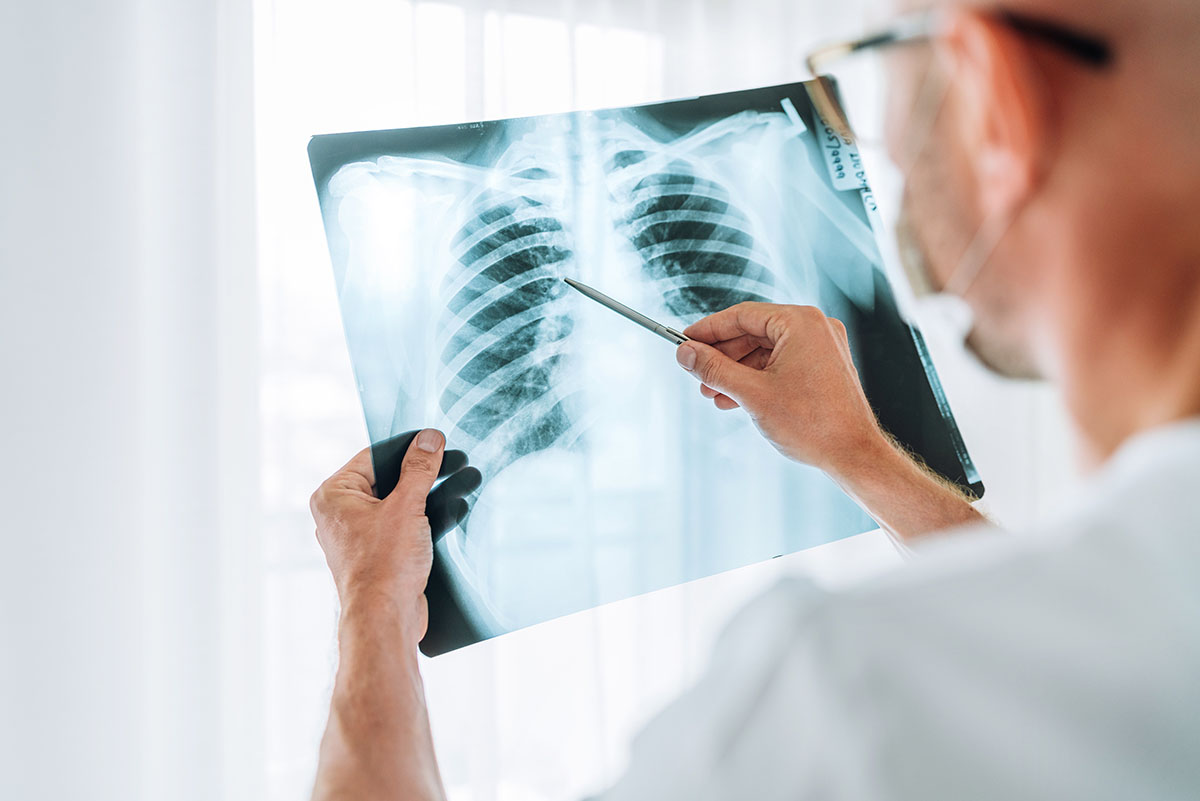Overview of Lung Cancer Variants
Lung cancer, one of the most common and serious types of cancer, is primarily categorized into two main types: non-small cell lung cancer (NSCLC) and small cell lung cancer (SCLC). NSCLC accounts for approximately 85% of cases and includes subtypes such as adenocarcinoma, squamous cell carcinoma, and large cell carcinoma. SCLC, associated with a history of smoking, is less common but more aggressive.
Current Treatment Options
Treatment for lung cancer depends on the stage of the disease, the patient’s overall health, and the type of lung cancer. Options include surgery to remove the tumor, chemotherapy to kill cancer cells, radiation therapy to destroy cancerous tissue, targeted therapy that focuses on specific abnormalities within cancer cells, and immunotherapy that helps the immune system fight the cancer.
Advancements in Lung Cancer Therapy
Recent years have seen significant advancements in lung cancer therapy. Personalized medicine, where treatment is tailored to the genetic makeup of a patient’s cancer, has become more prevalent. New drugs and therapies are continually being developed, offering hope for increased survival rates and improved quality of life for lung cancer patients.
Emotional and Psychological Support for Patients and Families
Coping with a lung cancer diagnosis can be an overwhelming experience for both patients and their families. It is crucial to address the emotional and psychological challenges that arise during this time.
Coping with Diagnosis
The initial diagnosis of lung cancer often brings a flood of emotions, including shock, fear, and uncertainty. It is important for patients and their loved ones to:
- Acknowledge and express their feelings
- Seek information from reliable sources to understand the condition
- Consider professional counseling to navigate through this difficult period
The journey through lung cancer can be eased by emphasizing research, understanding the disease, and hearing survivor stories.
Support Groups and Counseling
Support groups and counseling services provide a safe space for patients and families to share experiences and receive emotional support. Benefits include:
- Connecting with others who are facing similar challenges
- Learning coping strategies and practical advice
- Gaining strength from a community of support
Incorporating palliative care into the treatment plan can significantly improve the quality of life by providing relief from symptoms and stress.
Managing Stress and Anxiety
Stress and anxiety are common responses to a cancer diagnosis and can affect the overall well-being of patients and their families. Strategies to manage these feelings include:
- Regular physical activity and relaxation techniques
- Mindfulness meditation and breathing exercises
- Establishing a routine to provide a sense of normalcy
Access to comprehensive care, including psychological support, is essential for maintaining mental health during the cancer journey.
Navigating the Healthcare System
Navigating the healthcare system can be a daunting task for lung cancer patients and their families. Understanding the intricacies of insurance policies, finding financial assistance, and knowing one’s rights are crucial steps in managing the disease effectively.
Insurance and Financial Assistance
For many patients, dealing with insurance is the first major hurdle after a lung cancer diagnosis. It’s important to:
- Review your insurance policy to understand coverage limits and out-of-pocket costs.
- Explore options for government-funded programs like Medicare or Medicaid.
- Seek out financial assistance programs offered by non-profit organizations and pharmaceutical companies.
Accessing Specialized Care
Access to specialized care can significantly impact a patient’s treatment journey. Steps to ensure the best care include:
- Researching hospitals and cancer centers with specialized lung cancer programs.
- Seeking second opinions to confirm diagnosis and treatment plans.
- Coordinating with a multidisciplinary team for a comprehensive approach to treatment.
Patient Advocacy and Rights
Patients have rights that protect them throughout their medical care. It’s essential to:
- Understand the Patient’s Bill of Rights to ensure fair treatment and privacy.
- Utilize patient advocacy services for support in navigating the healthcare system.
- Be aware of legal resources, such as Sugarman Law, which provides legal representation for asbestos-related lung cancer cases, offering free consultations to victims and their families for over 25 years.
Contacting such firms can be a step towards compensation and justice for those affected by occupational hazards leading to lung cancer.
Lifestyle Adjustments and Rehabilitation
Lung cancer treatment often necessitates significant lifestyle changes to support recovery and improve quality of life. Patients and their families are encouraged to explore various rehabilitation options and make adjustments that cater to the patient’s evolving needs.
Nutritional Guidance for Lung Cancer Patients
Proper nutrition is crucial for lung cancer patients to maintain strength and support the immune system during and after treatment. Dietitians specializing in oncology can provide personalized eating plans that include:
- High-protein foods to aid tissue repair and growth
- Antioxidant-rich fruits and vegetables to combat treatment side effects
- Small, frequent meals to manage appetite changes
Physical Rehabilitation Programs
Physical rehabilitation is an integral part of recovery, helping patients regain strength and lung function. Programs may involve:
- Respiratory exercises to improve breathing efficiency
- Strength training to combat muscle atrophy
- Endurance activities to increase overall stamina
Integrating Complementary Therapies
Complementary therapies can enhance conventional treatment and provide holistic support. Patients may find relief and comfort in:
- Acupuncture to reduce pain and nausea
- Yoga or meditation for stress reduction
- Massage therapy to alleviate tension and promote relaxation
Each of these components plays a vital role in the comprehensive care of lung cancer patients, aiming to not only extend survival but also to enhance the quality of life.
Community and Social Resources
Local and National Support Organizations
Patients with lung cancer and their families can find a wealth of resources through both local and national support organizations. These entities often provide comprehensive information on lung cancer, including its causes, symptoms, diagnosis, stages, and treatments. Many organizations also focus on specific aspects such as asbestos exposure and the legal help available for those affected. They play a crucial role in offering support and resources for victims seeking justice and compensation.
Volunteer Services and Assistance
Volunteer services offer invaluable assistance to lung cancer patients and their families. These services range from providing transportation to medical appointments, helping with household chores, to offering companionship. Volunteers are often trained to understand the unique needs of lung cancer patients, ensuring that the support they provide is both empathetic and practical.
Educational Workshops and Seminars
Educational workshops and seminars are essential for keeping patients and families informed about the latest developments in lung cancer treatment and care. These events provide opportunities to learn about new therapies, understand the prognosis of lung cancer, and connect with healthcare professionals and other patients. They also serve as a platform for sharing experiences and coping strategies, fostering a sense of community among attendees.




